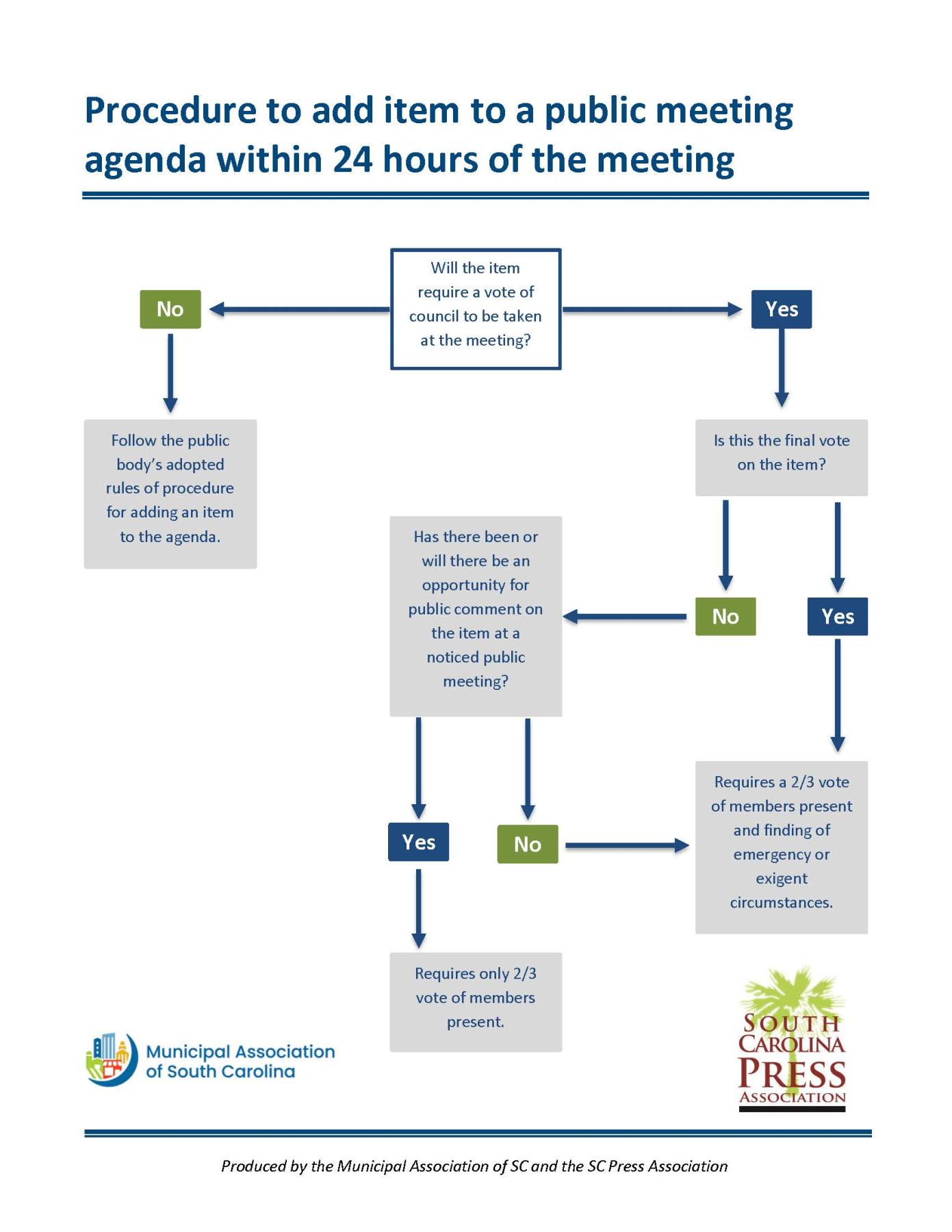Public meeting agendas lie at the core of how local governments conduct their business. Agendas list out the items to be considered and acted upon by a city council or other public body — and because of their critical role, the SC Freedom of Information Act sets requirements for how they are to be publicly posted and distributed at least 24 hours in advance of a meeting. Every step of the agenda management process, from its development to its distribution, has legal requirements, recommended best practices, or both.
Distributing agendas
FOIA requires public bodies to distribute meeting agendas in several places ahead of the 24-hour deadline:
- posting it at a publicly accessible location at the public body’s office or meeting place;
- posting it on the public body’s website, if any; and
- sharing it with the local news media and others who have requested notification.
The municipal clerks who handle all of this generally have a practiced routine for every aspect of it — drafting, posting and uploading. An Uptown article on agenda management took a look at how some municipal clerks around the state handle the process.
The specific requirements of FOIA don’t prevent municipalities from going further to help spread information about what is happening in council meetings. This recent Uptown article explores efforts used in Greer, Tega Cay and Yemassee — advertising meetings through social media, or offering the full agenda packet with additional details on every item.
Who can set or change an agenda?
In most cases, agenda preparation is an informal process in which elected officials and staff provide the municipal clerk with items to be included on the agenda within a certain deadline, and the clerk prepares the agenda. In some cases, however, controversy may arise over whether an item should be included on the agenda, and state law doesn’t directly address the question of how to handle such a situation. This article takes a look at steps cities can take to clarify their process, such as by enacting an ordinance.
Adding an agenda item within 24 hours
When, and how, can city councils add agenda items for a meeting taking place less than 24 hours in the future? This frequently arising question has an answer in FOIA, but since the process has multiple steps, the Municipal Association and the SC Press Association developed a flowchart to explain the process.

Avoid adopting an agenda as an action item
South Carolina’s Freedom of Information Act received numerous updates in 2015, including one that considers a city council agenda to be legally “adopted” by the council at the time of its posting. Because of this, the once-common practice of a council voting to adopt an agenda at the beginning of the meeting is redundant and can cause issues, as explained in this article.
Executive session agenda items
Executive sessions — the times at which public bodies close their meetings to the public because of a specific FOIA exception, such as a personnel matter or legal advice — are typically listed on the agenda. A council could vote to enter executive session without listing it on the agenda, but because of the 24-hour public notice period, they cannot add an agenda item to act on the matter discussed afterward.
More resources
- The Municipal Association’s Handbook for Municipal Officials in South Carolina explains the purpose and processes of making agendas as well as types of agenda items, like information-only items, action items with or without public comment.
- The SC Press Association’s Public Official’s Guide to Compliance with the S.C. Freedom of Information Act addresses the legal requirements for public notices of meetings, what must go into the notices, and amending agendas.
